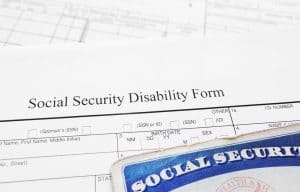
The Social Security Administration determines if you meet their definition of disabled and if you are eligible for Social Security disability benefits. Your doctor does not decide if you are disabled and eligible for Social Security disability benefits.
It is helpful for your claim for Social Security disability benefits if your doctor is supportive of your claim for benefits. Having a doctor that is supportive makes your case stronger. It is also helpful if your doctor is aware of how limiting your condition is. You should communicate with your doctors about the difficulties you are having.
The Social Security Administration will decide if you are disabled by evaluating your doctor’s notes, hospital records, results of any tests that you may have had, and other records.
The SSA may evaluate this documentation along with your doctor’s statements about your condition to decide whether you meet their definition of disability or not. Our team can tell you more about how the Social Security Administration determines your eligibility for disability benefits. We can also help you navigate the process of seeking benefits.
How Do I Qualify for Disability Benefits?
To qualify for disability benefits, you will essentially need to prove that your condition is so severe that you are unable to work. This may sound straightforward, but the application process is often more complicated.
Social Security Disability (SSD) refers to two types of benefits: Social Security Disability Insurance (SSDI) and Supplemental Security Income (SSI). These are two separate types of benefits that involve two different applications, but you would submit proof of your qualifications to the SSA in both instances.
Meeting Requirements for SSI and SSDI
To seek SSI, you need to meet disability requirements and income requirements. SSI is intended for individuals of limited resources. This program does not consider an applicant’s work history to qualify.
To seek SSDI benefits, you will need to provide documentation that you have:
- Sufficient work history
- A disabling impairment
Sufficient work history means that you will need to show the SSA you’ve worked for a certain number of years.
What Is a Disabling Impairment, According to the SSA?
A disabling impairment could be any number of health conditions, ranging from physical limitations to illnesses such as respiratory conditions. The SSA will consult a manual referred to as the Blue Book to determine your eligibility. The Social Security Administration (SSA) categorizes impairments according to the following:
- Musculoskeletal Disorders
- Special Senses and Speech Disorders
- Respiratory Disorders
- Cardiovascular System Disorders
- Digestive System Disorders
- Genitourinary Disorders
- Hematological Disorders
- Skin Disorders
- Endocrine Disorders
- Congenital Disorders that Affect Multiple Body Systems
- Neurological Disorders
- Mental Disorders
- Cancer (Malignant Neoplastic Diseases)
- Immune System Disorders
Our SSD lawyers can explain more about these qualifications and help you understand if you meet the requirements.
40+ years of experience from strong, knowledgeable, compassionate attorneys.
Start A Free EvaluationWhat Does the Process of a Disability Claim Entail?
Disability claims can take time to process. The process entails the following steps:
- Gather evidence: Collect as much evidence as possible to prove your medical condition. This may include your medical records, providers’ names, and notes from your doctor about your condition. Collect details from your employer about your inability to work, such as records of your missed paychecks.
- Application: You can apply through several routes. You can work with a law firm, such as our team, to ensure your paperwork is in order. Alternatively, you can go in person to your local SSA office, apply by phone, or apply online.
- Appeal: If your claim was denied, you can appeal, per the SSA. If you live in a state that requires you file a request for reconsideration, do so. This is typically considered the first level of appeal through the SSA. If you do not have to request reconsideration, you can request a hearing with an Administrative Law Judge (ALJ), per the SSA.
- Hearing: A hearing with an ALJ will be set and your application will be reviewed. This hearing may be either in person or virtual.
Working with one of our lawyers can be especially valuable if your claim is denied. We can assist you with the process if you need to request reconsideration or a hearing before an ALJ.
We know you’re hurting. We can help. Free case evaluations, home and hospital visits.
Contact Us Now For HelpHow Our Lawyers Can Help You with Your SSD Application
You can file an application on your own, but you may benefit from legal help at some stage of the process. Our legal team can help you apply for SSD benefits and be with you through every step. We can:
- Analyze your claim and determine its potential for approval
- Review your application for benefits
- Ensure the SSA has the appropriate information about your medical providers
- Stand by you if your claim is denied and review your denial
- Advise you on proceeding with reconsideration and appeal
- Take your appeal to federal court, if necessary
- Answer all your questions and advise you of your options
It is common to face a denial of benefits. We can help you prepare the strongest case possible.
You need an attorney with the experience and dedication to give your case the care it deserves.
Start A Free EvaluationGet a Free Case Evaluation From Berger and Green
You may be in pain from your disability all while facing medical bills and lost income. You don’t have to be alone in your situation, however. Our attorneys can be there for you as you navigate the complex process of a disability claim.
Take advantage of a free case review today to learn more about your options: (412) 661-1400. Tell us more about your health condition and your application for disability. We can tell you how our lawyers can help.










